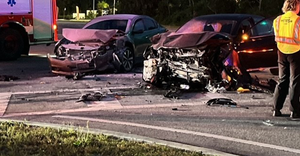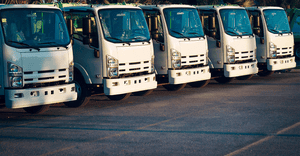Episode 115: The Future of Recycling: Lessons Learned from the Past
In this week’s episode of NothingWasted!, we bring you a dynamic session from WasteExpo 2021, “The Future of Recycling: Lessons Learned from the Past.”
This session features panelists Kate Bailey, Policy and Research Director, Eco-Cycle; Bob Cappadona, Vice President, Casella Resource Solutions; Chaz Miller, CEO, Miller Recycling Associates; and Michael Timpane, Partner/VP, Resource Recycling Systems (RRS).
The speakers dug into the commonalities among historically successful recycling systems and how we can apply this knowledge going forward, where recycling could be headed, and so much more.
Here’s a sneak peek into the discussion:
Moderator Kristin Kinder, Vice President of Research and Waste Stream Sustainability, Wastequip: What is going to get us closer to an ideal recycling system (maximum capture rates, sorting efficiencies, and market values; and minimum contamination) over the next decade?
Timpane: That’s a good question, and the answer kind of lies with things we don’t necessarily want to hear. No doubt there will be more regulation. And there will need to be some kind of uniformity in the way we approach things—whether it’s labeling, material, or just a limit on the types of things we have to deal with.
Bailey: I see two trends on capturing value. One is thinking outside the MRF. What are materials that don’t actually have to come to us? For instance, there have been proven successes with bottle programs around the world, where they are getting the highest capture rates and the cleanest materials. I also think there is a necessity for us to protect the value that we have. For instance, flexible films are a serious challenge to our paper quality. There is a big push from brands to have those recyclable in he curbside stream, and I think we have to proceed very carefully.
Miller: I think the first thing we have to realize is that there are more purposes to a package than to be recycled—in particular, protecting products and reducing food waste. Beyond that, packaging will always evolve. And recycling systems will always play catch up.
Moderator: What are you thinking about for the future with MRF technology and processing?
Cappadona: I think the obvious one is robotics. Labor within the industry is very difficult. So, replacing a sorter on the line with robotics, we’re not there yet but... At Casella, we’d also use it on the back end of a line to capture anything that may have been missed or hidden in the process. That technology will come along no doubt.
Moderator: What do we need to look out for in the evolving ton?
Miller: E-commerce increased by 1/3 in 2020; however, e-commerce as a percent of retail sales has actually declined in the last two quarters, and that’s due to the reopening of stores. That doesn’t mean there is less e-commerce overall—but nobody really knows for sure what will happen. Will e-commerce continue to grow? We really don’t know.
Bailey: I was at a sustainable packaging conference in 2018, and a panel discussion asked whether we would see the end of grocery stores in ten years. They were already thinking about how shopping was changing, and Covid has accelerated that. There are huge opportunities for us to rethink our entire system. As Bob said, the Amazon guy is practically in my neighborhood four times per day; why isn’t he picking up some of these boxes and taking them back? There are huge opportunities to rethink packaging, utilizing refill, and more.
#NothingWastedPodcast
About the Author(s)
You May Also Like




